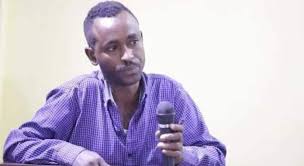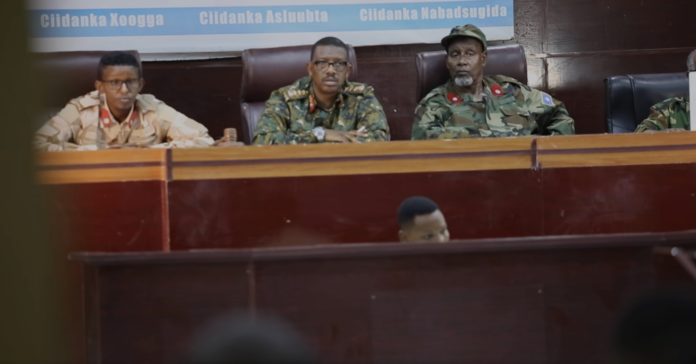MOGADISHU (KAAB TV) – The stark and very concerning reality is the lack of due process for people sentenced to the death penalty in Somalia, lawyers and journalists say.
This week, the rights group Amnesty International published its annual report on global executions, showing that executions more than tripled in sub-Saharan Africa, as global executions soared to the highest number in almost a decade.
In sub-Saharan Africa, recorded executions more than tripled, and recorded death sentences increased by 66%.
Somalia was the only country known to have carried out executions in the region. In 2023, Somalia executed 31 individuals.
Almost all such sentences are carried out by military courts. The country is fragmented politically and each region has its own separate court that carries execution.
Alleged murder, terrorism, treason, and very few cases of rape are sentenced with the death penalty based on Sharia law. However, lawyers and journalists contend that the law is severely abused.
The terror group Al-Shabaab also carries out executions on people they perceive ‘adversaries’.
Lawyers say children are sometimes among those executed, with no guarantee whatsoever to protect children from the death penalty.
However, Abdalle Mumin, a human rights defending journalist and the secretary general of the Somali Journalists Syndicate, states that the main problem is the proliferation of courts that carry out these executions.

“For example, the central government, which only controls the capital city, Mogadishu, uses its own military court while the regional states have their own separate military courts, and none of them collaborate with the other. That means there are massive loopholes where justice cannot be guaranteed at all,” Mumin explains.
“Corruption is rampant in Somalia, and the courts themselves are not independent, so there are many instances where people are detained and sentenced with a hasty process or sometimes, as we have seen, with baseless evidence,” Mumin says.
Revenge against certain clans
One other concern is that Somalia is socially and politically divided. When the country plunged into civil war in 1991, clans resorted to violence against each other, and courts are used to exact revenge against certain clans or groups that are either ethnically persecuted or have no influence.
“People with political vendettas take advantage of the system and use the courts to exact revenge against rival clans. This has cost many lives, unfortunately,” Mumin, who has reported on the country’s conflict, says.
One example is the case of a soldier from the minority group Baadicadde who was executed in October 2022 by the Somali military court in Mogadishu for allegedly killing another soldier. The soldier, Abdinasir Daud, was executed in the early hours of October 7, 2022.

“The court only had one sitting to hear the case a month earlier before he was sentenced to death and executed by a firing squad in early October. Family members said they did not know when the execution was conducted, and there is a requirement that those convicted must get ample time to appeal or, if they lose again, they need to meet their family and write down their will before they are executed. In this case, all these procedures were not followed simply because he came from a very marginalized clan,” Mumin said.
This case was criticized by local MP Mohamed Ibrahim Moalimuu, who described it as “a power abuse and a new form of persecution against certain clans.”
In most cases, experts and local lawyers we have spoken to say “the threshold used as evidence to charge detainees before they are executed and convicted is not adequate, and independent lawyers are not allowed to represent the alleged individuals.”
“Many of those who work in these courts are either former militiamen or do not have adequate legal expertise. Accused individuals are kept in secret prisons, and no independent lawyers represent them. They are just put on secret trial and executed,” states journalist Mumin, who himself was detained in those secret jails between 2022 and 2023.
“As a journalist and myself a victim of Somalia’s justice system, I have observed a lot about how the courts operate, and it is indeed sad to say this. I have spoken to several families who say their loved ones were detained and then sentenced to death. When I was in detention, I met an old man who was waiting for execution for an alleged case which he believes he did not commit,” Mumin adds.
The call for reform the death penalty in Somalia is urgent and critical, as current practices violate fundamental human rights and perpetuate cycles of injustice and violence.
“Somalia and the few remaining countries in Africa that still retain the death penalty must heed the progressive regional trend and abolish the punishment once and for all,” says Tigere Chagutah of Amnesty International.


